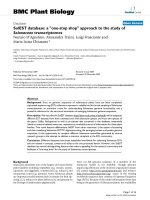The only grammar book youll ever need – a one stop source for every writing assignment nodrm
Bạn đang xem bản rút gọn của tài liệu. Xem và tải ngay bản đầy đủ của tài liệu tại đây (1.15 MB, 265 trang )
THEONLY
GRAMMAR
BOOK
YOU’LLEVERNEED
AONE-STOPSOURCE
FOREVERY
WRITINGASSIGNMENT
SUSANTHURMAN
EditedbyLarryShea
"******DEMO-www.ebook-
©2003.F+WMedia,Inc.
AdaptedfromTheEverything®GrammarandStyleBook
bySusanThurman.©2002.F+WMedia,Inc.
Allrightsreserved.Thisbook,orpartsthereof,maynotbereproduced
inanyformwithoutpermissionfromthepublisher;exceptions
aremadeforbriefexcerptsusedinpublishedreviews.
Publishedby
AdamsMedia,adivisionofF+WMedia,Inc.
57LittlefieldStreet,Avon,MA02322U.S.A.
www.adamsmedia.com
ISBN10:1-58062-855-9
ISBN13:978-1-58062-855-6
eISBN:978-1-44051-926-0
PrintedintheUnitedStatesofAmerica.
20191817161514131211
LibraryofCongressCataloging-in-PublicationData
Thurman,Susan(SusanSommers)
Theonlygrammarbookyou'lleverneed/SusanThurman.
p.cm.
ISBN1-58062-855-9
1.Englishlanguage-Grammar--Handbooks,manuals,etc.I.Title.
PE1112.T4952003
428.2-dc21
2002153891
This publication is designed to provide accurate and authoritative information with
regardtothesubjectmattercovered.Itissoldwiththeunderstandingthatthepublisher
is not engaged in rendering legal, accounting, or other professional advice. If legal
advice or other expert assistance is required, the services of a competent professional
personshouldbesought.
"******DEMO-www.ebook-
-FromaDeclarationofPrinciplesjointlyadoptedbyaCommitteeof
theAmericanBarAssociationandaCommitteeofPublishersandAssociations
Manyofthedesignationsusedbymanufacturersandsellerstodistinguishtheirproducts
areclaimedastrademarks.Wherethosedesignationsappeal*inthisbookandAdams
Mediawasawareofatrademarkclaim,thedesignationshavebeenprintedwithinitial
capitalletters.
Thisbookisavailableatquantitydiscountsforbulkpurchases.
Forinformation,call1-800-289-0963.
"******DEMO-www.ebook-
Contents
Introduction
Chapter1:FindingtheRightWords
SpellingItOut
CommonlyConfusedWords
Chapter2:PartsofSpeech
Nouns
Pronouns
Adjectives
Verbs
Adverbs
ComparisonswithAdjectivesandAdverbs
Prepositions
Conjunctions
Interjections
Chapter3:BasicSentenceStructure
SubjectsandPredicates
Complements
SubjectComplements
Phrases
Clauses
"******DEMO-www.ebook-
RestrictiveandNonrestrictiveClauses
SentenceFunctions
Subject-VerbAgreement:KeepingtheHarmony
Chapter4:VerbVarieties
Verbals
VerbTenses
IrregularVerbs
Moods
Chapter5:PronounProblems
ProblemswithAgreement
ProblemswithIndefinitePronouns
VaguePronounReferences
ChoosingtheRightPerson
PronounCases
SituationswithThanandAs
WhoandWhom:ADifferentSlant
Chapter6:PunctuationandStyle
EndingaSentence
QuotationMarks
UsingApostrophes
Commas
Colons
Semicolons
"******DEMO-www.ebook-
Hyphens
Dashes
Parentheses
SquareBrackets
ItalicsandUnderlining
AngleBrackets
EllipsisPoints
TheSlash/Virgule/Solidus
Chapter7:WritingBetterSentences
MisplacedModifiers
DanglingModifiers
SquintingModifiers
ParallelisminWriting
WritingLogically
SentenceFragments
Run-OnSentences
TransitionalWordsandPhrases
Chapter8:AvoidingCommonErrors
SteeringClearofClichés
EliminatingRepetition
CuttingOutWordyExpressions
DoubleNegatives
AndtheSurveySays
"******DEMO-www.ebook-
Chapter9:GettingDowntoBusiness:WritingandRevising
HelpfulPreliminaries
YourFirstDraft
RevisingYourWriting
AFinalReading
Chapter10:WritingFormats:Essays,Summaries,Reports,
andMore
ASingleParagraph
TheFive-ParagraphEssay
TheAbstract
TheArgumentEssay
TheCause-and-EffectEssay
CompareandContrast
ACriticalAnalysis
APersonalJournal
DescriptiveEssays
AutobiographicalNarratives
ThePrécis
TheProcessPaper
BusinessandTechnicalWriting
TheResearchPaper
TheReview
AppendixA:1001FrequentlyMisspelledWords
"******DEMO-www.ebook-
AppendixB:SuggestedSubstitutesforWordyPhrases
AppendixC:HelpfulGrammarandWritingWebSites
"******DEMO-www.ebook-
Introduction
“TheOnlyGrammarBookYou’llEverNeed.”
Wow.
Thisbookmustbereallygood,mustn’tit?
Butbeforewetellyouwhythismodestlytitledvolumereallyis
the only grammar book you’ll ever need, let’s think about why
youneedagrammarbookatall.
MaybeallthattalkinEnglishclassaboutpartsofspeechand
dangling participles never truly sunk in, even after your teacher
coveredtheblackboardwiththosehelpfulsentencediagrams.(If
English is not your first language, you might not even have had
thebenefitofsuchinstruction.)Maybeyoudidknowthismaterial
once,but many of the fine points of English grammar now give
youtrouble.Nowyouhavetowritesomething—apaper,aletter,
amemo—forschool,work,oryourpersonallife.Youmightnot
besurehowtobeginit,andyou’redefinitelynotconfidentabout
completingitcorrectly.
The Only Grammar Book You’ll Ever Need explains the
necessary terms for understanding and discussing grammar, the
important rules and their exceptions, and all the most common
writingerrors—includinghowtoavoidthem.
This book can help you out in all types of writing situations,
not just in formal assignments. Let’s say you’re rereading an email you’ve composed (as you always do just before clicking
“Send,”right?).Afterreadingthisbook,you’llfinditmucheasier
to notice and correct missing words, inappropriate language,
"******DEMO-www.ebook-
unclearreferences,commonmisspellings,andmore.
Thismaybetheonlygrammarbookyou’lleverneed,butit’s
nottheonlybookyou’lleverneedforwriting.Agooddictionary
(such as a hardcover college edition) is an essential desktop
accessory, and a thesaurus can save you time when you’re
stumped looking for the right word. For certain types of work
(especially academic writing), you may need one of the style
guides listed in Chapter 10. But for solving tricky grammar
questions, avoiding embarrassing errors, and getting your
thoughtsorganizedenoughtoputpentopaper,thiscompactwork
willprovideyouwithallthetoolsyou’lleverneed.
"******DEMO-www.ebook-
Chapter1
FindingtheRightWords
T
hemostdamagingmistakesawritercanmakeareprobably
misspellingormisusingwords.Justafewoftheseerrorswill
makeareaderloseconfidenceinwhatyou’retryingtosay.
Here are the basic rules of English spelling and the most
commonlymisusedwords.Forfurtherhelp,AppendixAgivesthe
correctspellingofhundredsofwordsthatoftenconfuseeventhe
bestspellers.
SpellingItOut
You probably remember this spelling rule from your elementary
school:
Ibeforee,
Exceptafterc,
Orwhensoundedasa,
Asinneighbororweigh.
That’scertainlyahelpfulrule—mostofthetime.Itworksfor
words such as beige, ceiling, conceive, feign, field, inveigh,
obeisance,priest,receive,shield,sleigh,andweight.
But take a look at all these words: ancient, being, caffeine,
either,feisty,foreign,height,leisure,protein,reimburse,science,
"******DEMO-www.ebook-
seize,society,sovereign,species,sufficient,andweird.
Thereareanawfullotofexceptions,aren’tthere?
Here are some rules that generally apply to English nouns.
Everyrulewillhaveanexception(andprobablymorethanone),
buttheseruleswillprovideyouwithsomeusefulguidelines.
FormingPluralsofNouns
1.ToformthepluralofmostEnglishwordsthatdon’tendin–s,
–z,–x,–sh,–ch,or–ss,add–sattheend:
desk=desks,book=books,cup=cups
2.ToformthepluralofmostEnglishwordsthatendin–s,–z,–x,
–sh,–ch,and–ss,add–esattheend:
bus = buses, buzz = buzzes, box = boxes, dish = dishes,
church=churches,kiss=kisses
There are some exceptions to this rule that include quizzes,
frizzes,andwhizzes.(Notethatthe–zisdoubled.)
3.ToformthepluralofsomeEnglishwordsthatendin–o,add–
esattheend(thismightnowbeknownastheQuayleRule):
potato=potatoes,echo=echoes,hero=heroes,veto=vetoes
To make things interesting, for some other words that end in
–o,addonly–sattheend:
auto = autos, alto = altos, two = twos, zoo = zoos, piano =
pianos,solo=solos
"******DEMO-www.ebook-
And—justtokeepyouonyourtoes—somewordsendingin–o
canformthepluralineitherway:
buffalo=buffaloes/buffalos,cargo=cargoes/cargos,ghetto=
ghettos/ghettoes
4. To form the plural of most English words that end in a
consonantplus–y,changetheytoiandadd–es:
lady=ladies,candy=candies,penny=pennies
5.ToformthepluralofmostEnglishwordsthatendinavowel
plus–y,add–s:
joy=joys,Monday=Mondays,key=keys,buy=buys
6.ToformthepluralofmostEnglishwordsthatendin–for–fe,
changetheftovandadd–es:
knife=knives,leaf=leaves,wife=wives,wolf=wolves
Exceptions to this rule include oaf, chef, cliff, belief, tariff,
plaintiff,roof,andchief.Allsimplyadd–stoformtheirplural.
7.Somewordsformtheirpluralsinwaysthatdefycategories:
child=children,mouse=mice,foot=feet,person=people,
tooth=teeth,ox=oxen
8. Foreign words, such as those of Greek or Latin origin, often
have an irregular plural. In some cases, both the regular and
irregularpluralformsareacceptable.
alumnusalumni
analysisanalyses
"******DEMO-www.ebook-
focusfocusesorfoci
indexindexesorindices
9.Somewordsarethesameinbothsingularandplural:
deer,offspring,crossroads,headquarters,cod,series
AddingPrefixesandSuffixes
1. Words that end in –xdon’t change when a suffix is added to
them:
fax=faxing,hoax=hoaxed,mix=mixer
2. Words that end in –cdon’t change when a suffix is added to
themiftheletterbeforethecisa,o,u,oraconsonant:
talc=talcum,maniac=maniacal
3.Wordsthatendin–cusuallyaddkwhen a suffix is added to
themiftheletterbeforetheciseoriandthepronunciationofthe
cishard:
picnic=picnickers,colic=colicky,frolic=frolicking
4. Words that end in –c usually don’t change when a suffix is
added to them if the letter before the c is e or i and the
pronunciationofthecissoft:
critic=criticism,clinic=clinician,lyric=lyricist
5. Words that end in a single consonant that is immediately
preceded by one or more unstressed vowels usually remain
"******DEMO-www.ebook-
unchangedbeforeanysuffix:
debit=debited,credit=creditor,travel=traveled
Ofcourse,thereareexceptions,suchasthese:
program = programmed, format = formatting, crystal =
crystallize
6. When a prefix is added to form a new word, the root word
usuallyremainsunchanged:
spell=misspell,cast=recast,approve=disapprove
In some cases, however, the new word is hyphenated. These
exceptionsincludewhenthelastletteroftheprefixandthefirst
letteroftheworditisjoiningarethesamevowel;whentheprefix
isbeingaddedtoapropernoun;andwhenthenewwordformed
by the prefix and the root must be distinguished from another
wordspelledinthesamewaybutwithadifferentmeaning:
anti-institutional,mid-March,re-creation(versusrecreation)
7.Whenaddingasuffixtoawordendingin–y,changetheytoi
whentheyisprecededbyaconsonant:
carry=carrier,irony=ironic,empty=emptied
Notethatthisruledoesn’tapplytowordswithan–ingending:
carry=carrying,empty=emptying
This rule also doesn’t apply to words in which the –y is
precededbyavowel:
delay=delayed,enjoy=enjoyable
"******DEMO-www.ebook-
8.Twoormorewordsthatjointoformacompoundwordusually
keeptheoriginalspellingofeachword:
cufflink,billfold,bookcase,football,payday
9.Ifawordendsin–ie,changethe–ieto–ybeforeadding–ing:
die=dying,lie=lying,tie=tying
10.Whenadding–fulltotheendofaword,changetheendingto
–ful:
armful,grateful,careful,useful,colorful
TheEnglishWay
Youprobablyknowthatthemeaningsofsomewords
aredifferentinBritainthanintheUnitedStates,suchas
theBritishusageofchipsforwhatAmericanscall
Frenchfries,andlorryforwhatAmericanscallatruck.
Butareyouawarethattherearemanyvariationsin
spellingaswell?Hereareafewofthevariations
betweenAmericanEnglishandBritishEnglish:
American
airplane
center
color
draft
gray
jail
labor
spelled
theater
British
aeroplane
centre
colour
draught
grey
gaol
labour
spelt
theatre
"******DEMO-www.ebook-
tire
tyre
CommonlyConfusedWords
Need a little advice (or should that be advise?) about certain
words?Areyoufeelingalright(orallright?)aboutyourabilityto
choose between (or is that among?) alumni, alumnae, alumnus,
andalumna?
Nottoworry!Hereisalistofwordsoftenconfusedormisused,
withanexplanationofwheneachshouldbeused.
a,an:Aisusedbeforewordsthatbeginwithaconsonantsound
(a pig; a computer); an is used before words that begin with a
vowel sound (anearring,an integer). The sound is what makes
thedifference.Writeahabitbecausehabitstartswiththehsound
afterthearticle,butwriteanhonor becausethehin honor isn’t
pronounced.
Whatanhonoritistomeetahistoryexpertlikeyou.
alot,alot,allot:Okay, let’s begin with the fact that there is no
suchwordasalot.If you mean a great number of people, use a
lot. Here’s a mnemonic for this: “a whole lot” is two whole
words.Ifyoumeantoallocate,useallot.Amnemonicforallotis
allocate=allot.
Tomorrow night, the mayor will allot a lot of money for
variousmunicipalprojects.
accept, except: Accept has several meanings, including believe,
"******DEMO-www.ebook-
take on, endure, and consent; except means excluding. If your
sentence can keep its meaning if you substitute excluding, use
except.
Except for food for the volunteers, Doris would not accept
anydonations.
adapt,adopt:Toadaptistochange;toadoptistotakeandmake
yourown.
After the couple adopted the baby, they learned to adapt to
havinglittlesleep.
advice, advise: Advise is what you do when you give advice.
Here’samnemonictohelpyouremember:Toadviseyoumustbe
wise.Goodadviceistodriveslowlyonice.
Grandpa tried to advise me when I was a youngster, but I
wouldn’tlistentohisadvice.
affect, effect: Affect is usually a verb (something that shows
action),usuallymeanschangeorshape,and—asaverb—hasits
accent on the first syllable. Effect is almost always a noun
meaningresultoroutcome,appearanceorimpression.(Effecthas
arareuseasaverb,whenitmeanstoachieveorcause.)
The effect of the announcement of impending war will not
affectAdam’sdecisiontojointhemilitary.
aggravate, annoy: If you mean pester or irritate, you want
annoy.Aggravatemeansexaggerateormakeworse.
Steven was annoyed when his boss aggravated the situation
bytalkingtothepress.
"******DEMO-www.ebook-
aid,aide:Ifyouhelp,youaid;ifyouhaveahelperorsupporter,
youhaveanaide.
Theaidfrommyaideisinvaluable.
allready,already:Ifyoumeanallisready,useallready;ifyou
meaninthepast,usealready.
Ialreadytoldyouwe’reallreadytogoouttodinner!
all right, alright: Although you often see the incorrect spelling
alright, all right is always two words. You wouldn’t say
something is aleft or alwrong, would you? (Please say you
wouldn’t!)
Isitallrightwithyouifweeatintonight?
alltogether,altogether:Alltogethermeanssimultaneouslyorall
atonce;altogethermeansentirelyorwholly.Ifyoucansubstitute
entirely or wholly in the sentence and the meaning doesn’t
change,youneedtheformofthewordthatisentirely,whollyone
word.
You’re altogether wrong about the six friends going all
togethertothedance;eachisgoingseparately.
alumni, alumnae, alumnus, alumna: Here’s the rundown. One
malegraduateisanalumnus;onefemalegraduateisanalumna;
severalfemalegraduatesarealumnae;andseveralmalegraduates
or several male and female graduates are alumni. The short,
informalformalum(oralums)canbeusedforanyoftheabove.
Although Mary Jo and her sisters are alumnae from
Wellesley,MaryJoisthealumnawhoreceivesthemostattention;
"******DEMO-www.ebook-
herbrothersMartinandXavierarealumniofHarvard,butMartin
isamorefamousalumnusthanXavier.
allusion,illusion:Anallusionisareference;anillusionisafalse
impression.
KaytoldJerrythatshewasundertheillusionhewouldbeher
PrinceCharming;Jerrydidn’tunderstandtheallusion.
altar,alter: If you change something, you alter it; you worship
beforeanaltar.
We’ll alter the position of the altar so the congregation can
seethenewcarvings.
among,between:Thinkdivision.Ifonlytwopeoplearedividing
something, use between; if more than two people are involved,
useamong.Here’samnemonic:betweenfortwoandamongfora
group.
ThemoneywasdividedbetweenSarahandBob;thelandwas
dividedamongBilly,Henry,andJanice.
anybody, any body: Anybody means any one person (and is
usuallyinterchangeablewithanyone).Anybodyrefers(pardonthe
graphicreference)toonedeadperson.
Anybodycanhelptosearchforanybodythatmightnothave
beenfoundinthewreckage.
bad, badly: When you’re writing about how you feel, use bad.
However, if you’re writing about how you did something or
performedorreactedtosomething,usebadly(twistedyourankle
badly;playedbadlyinthegame).
"******DEMO-www.ebook-
Greggfeltbadhehadscoredsobadlyonthetest.
bear,bare:Abear cantearoffyour ear;ifyou’rebare,you’re
nude.
The bare bathers were disturbed when the grizzly bear
arrived.
besides, beside: If you want the one that means in addition to,
youwanttheonethathasanadditionals(besides);besidemeans
bythesideof.
Besideshergroom,thebridewantedherdadbesideherinthe
photo.
breath,breathe:Youtakeasinglebreath;youinhaleandexhale
whenyoubreathe.
Inthecoldofthewinter,itwashardformetobreathewhen
takingabreathoutside.
can,may:Ifyoucandosomething,you’rephysicallyabletodo
it.Ifyoumaydoit,youhavepermissiontodoit.
Youcanuseain’tinasentence,butyoumaynot.
cannot,amnot,isnot,arenot,andallother“nots”:Forsome
strangereason,cannotiswrittenasoneword.Allotherwordsthat
havenotwiththemarewrittenastwowords.Gofigure.
capital, capitol: The capitol is the building in which the
legislativebodymeets.IfyoumeantheoneinWashington,D.C.,
useacapitalC;ifyoumeantheoneinyourstate,usealowercase
c.Rememberthatthebuilding(theonespelledwithano)usually
hasadome.Usecapitalwithallothermeanings.
"******DEMO-www.ebook-
Thecapitalspentbythelegislatorsatthecapitolisappalling.
carat, caret, carrot, karat: A carat is a weight for a stone (a
diamond,forinstance);caratisalsoanalternatespellingofkarat,
whichisameasurementofhowmuchgoldisinanalloy(asinthe
abbreviation18k;thekisforkarat).Acaretisthisproofreading
mark:^(meaningthatyoushouldinsertsomethingatthatpoint).
Finally,acarrotistheorangevegetableyourmothertoldyouto
eat.
Set in an eighteen-karat gold band, the five-carat diamond
wasshapedlikeacarrot.
cite,sight,site:Yoursightisyourvisionoraview(youuseyour
sighttolookatabeautifulsight);tociteistomakereferencetoa
specificsource;asiteisalocation,suchasontheInternet.
The colors on the Web site you cited in your paper were a
sighttobehold.
coarse, course: If something is coarse, it’s rough; oars are
coarse.Acourseisaroute,aclass,orpartoftheidiomaticphrase
“ofcourse.”
Theracecourseledtherunnersovercoarseterrain.
complement,compliment:Ifsomethingcompletesanotherthing,
itcomplementsit(complete=complement).Ifyoureceivepraise,
you’vegottenacompliment(Iliketoreceiveacompliment).
Thejewelrywillcomplementtheoutfitthestarwillwear,and
shewillsurelyreceivemanycomplimentsonherattire.
council,counsel:Acouncilisanofficialgroup,acommittee;to
"******DEMO-www.ebook-
counselistogiveadvice(thestockbrokercounseledmetosell).
Thetowncouncildecidedtocounseltheyouthgrouponthe
properwaytoaskforfunds.
desert,dessert:A desertisadry,aridplaceor(usuallyusedin
the plural form) deserved reward or punishment (just deserts).
The verb that means to leave is also desert. The food that is so
sweetisadessert.
Whilelostinthedesert,Rexcravedadessertofapplepieàla
mode.
discreet,discrete: Discreetmeans cautious,careful, or guarded
inconduct.(Bediscreetaboutwhomyoumeet.) Discretemeans
separateordisconnected.
The dancer’s discreet movements were discrete from those
performedbytherestofthechorus.
dual,duel:Thefirstmeanstwo (dualpurposes);thesecondisa
fightorcontest(thelover’sjealousywasfuelfortheduel).
Thereweredualreasonsfortheduel:revengeandmoney.
emigrate, immigrate: To emigrate is to exit a country; to
immigrateistocomeintoacountry.
Tenpeopleweretryingtoemigratefromthetyrannyoftheir
countryandimmigratetotheUnitedStates.
ensure,insure:Toensureistomakecertainofsomething;insure
isusedonlyforbusinesspurposes(toinsureacar).
Toensurethatwecontinuetoinsureyourhouseandcar,send
"******DEMO-www.ebook-
paymentimmediately.
envelop, envelope: If you wrap something, you envelop it; the
papercontainerthatyouuseforyourletterisanenvelope.
Thehiddenpurposeoftheenvelopewastoenvelopthetwo
sticksofcandythatweremailedtome.
everyday,everyday:Everydaymeansroutineordaily(everyday
low cost); every day means every single day (low prices every
day).Usesinglewordsifyoumeaneverysingleday.
Theeverydayinexpensivepricesofthestoremeantthatmore
shopperscameeveryday.
faze, phase: To faze is to intimidate or disturb. As a noun, a
phase is a period of time; as a verb, it means to establish
gradually.
Iwasn’tfazedbyhiswishtophaseoutourrelationship.
fewer, less: Use fewer to describe plural words; use less to
describesingularwords.
Thenewproducthasfewercalories,butlessfat.
forego,forgo: If you mean something that has gone before, use
forego(aforegoneconclusion);ifyouwantthewordthatmeans
todowithoutsomething,useforgo(theonethatiswithoutthee).
It’s a foregone conclusion that Meg and Marion will forgo
sweetswhenthey’redieting.
foreword, forward: The word that means the opening
information in a book is foreword (it comes before the first
"******DEMO-www.ebook-

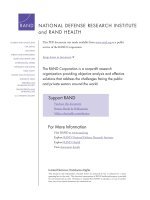
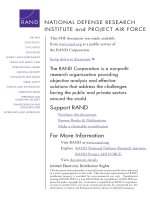

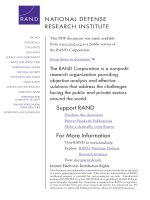

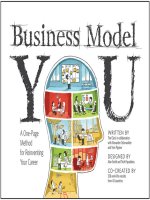
![the b2b social media book [electronic resource] become a marketing superstar by generating leads with blogging, linkedln, twitter, facebook, e-mail, and more](https://media.store123doc.com/images/document/14/y/ch/medium_eR7w58QEPS.jpg)

